Inside Xinjiang's 're-education camps': New images blow apart China's propaganda
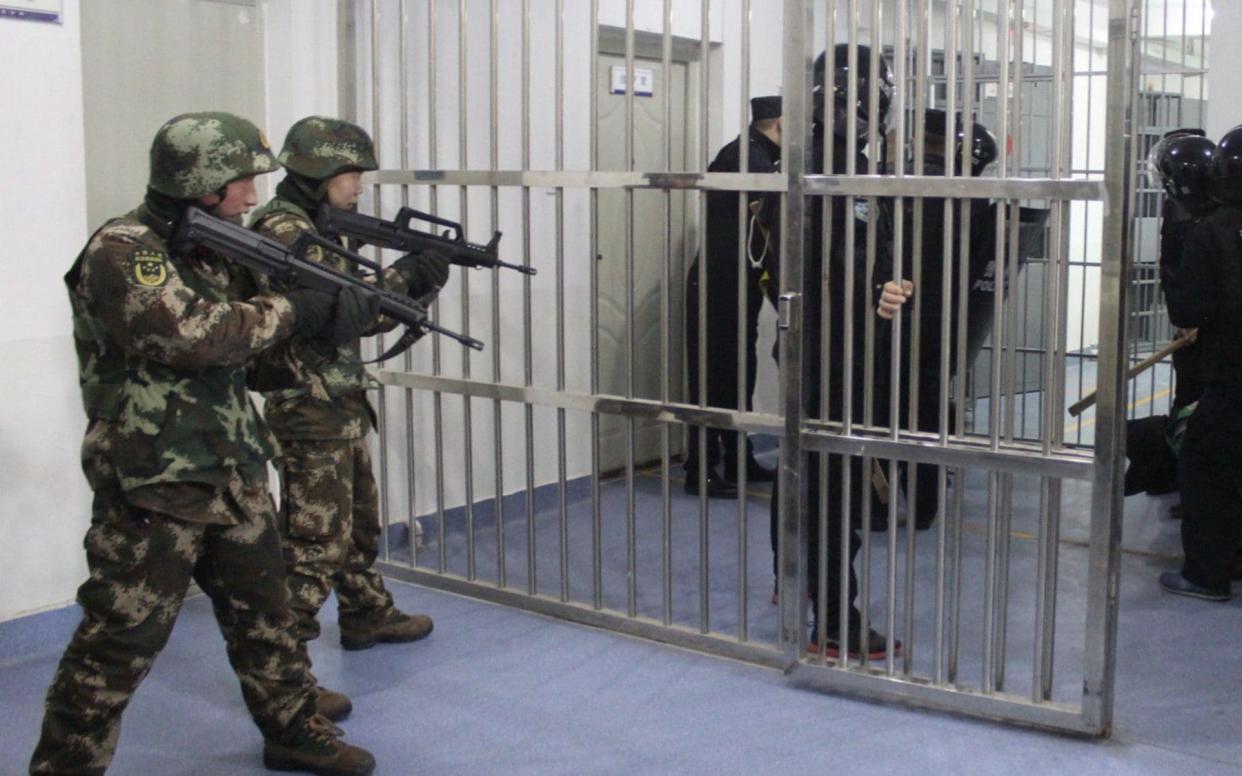
Chinese snipers were ordered to shoot at Uyghurs attempting to escape militarised internment camps in Xinjiang, a new cache of hacked data has revealed.
The data, known as the Xinjiang Police Files, provides some of the most substantial evidence to date that policies in Xinjiang target Uyghurs indiscriminately and of a chain of command leading all the way to Xi Jinping, the Chinese leader.
The unprecedented release contains new images revealing the inside of the camps for the very first time.
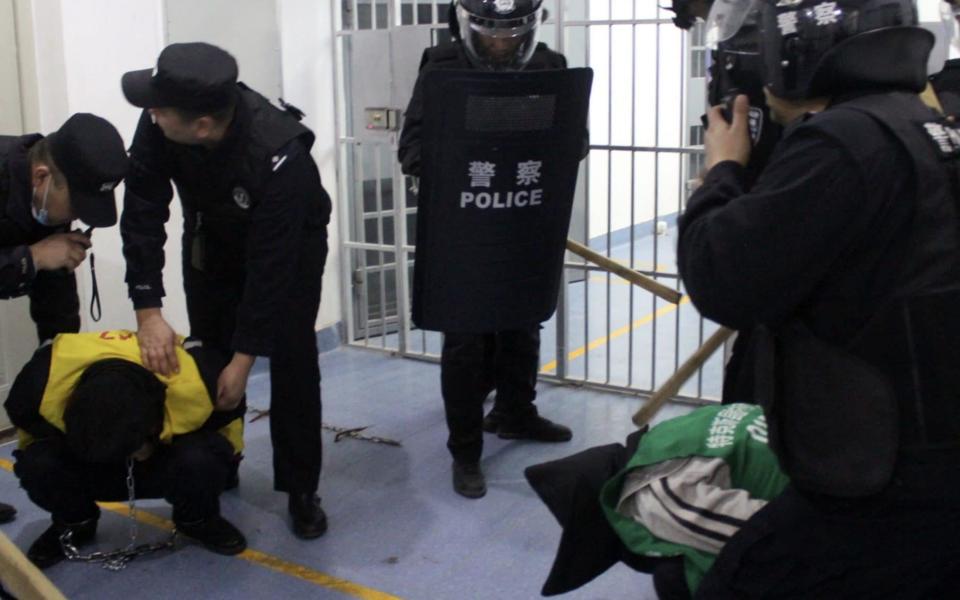
The images directly contradict the Chinese government’s claims that the re-education camps constructed from 2017 onwards are solely “schools”.
Photos include shots of Uyghurs chained by military officials carrying batons and riot shields and headshots of up to 5,000 Uyghurs detained for crimes as little as failing to use their mobile phones enough.
In one photo, officials dressed in military uniform point their guns at a prisoner kneeling at the feet of people dressed in riot gear. Another shows a line of women dressed in yellow uniforms as officials stand close by.
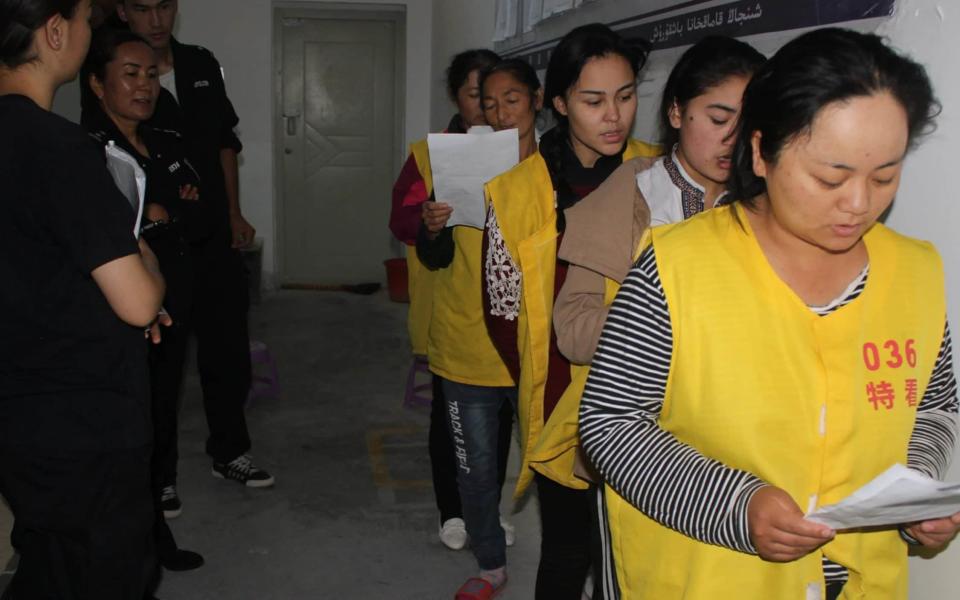
In the headshots of prisoners and people of interest, guards can be seen at the side, also carrying batons.
China has previously claimed that the internment camps are in fact "schools that help people free themselves from extremism".
But Dr Adrian Zenz, a scholar at the US-based Victims of Communism Memorial Foundation, previously sanctioned by China over his research on Uyghurs, said the material “blows apart the Chinese propaganda veneer”.
“We have confidential documents. We have speech transcripts where leaders freely talk about what they really think. We have spreadsheets. We have images. It's completely unprecedented,” he told the BBC.
“The material is unredacted, it's raw, it's unmitigated, it's diverse. We have everything.”
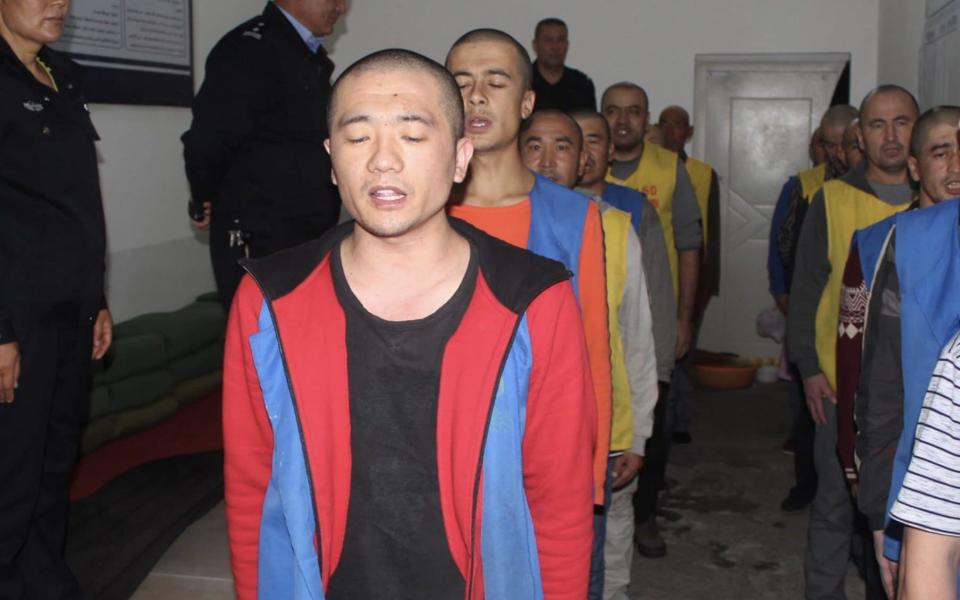
The files also list the reasons behind people's imprisonment, including numerous occasions where people were punished for “crimes” that occurred decades ago.
In one case, a man was detained for ten years after he allegedly “studied Islamic scripture with his grandmother” for a few days in 2010.
Others were handed up to ten years in prison for not using mobile devices enough. There are over one hundred instances of “phone has run out of credit” included on a list of crimes, taken as a sign of avoiding digital surveillance.
Some were detained for being guilty “by association”. One prisoner’s son was described to have “strong religious leanings” for declining to drink or smoke, leading to her imprisonment. Her son too was detained and given a ten-year sentence on terrorism charges.
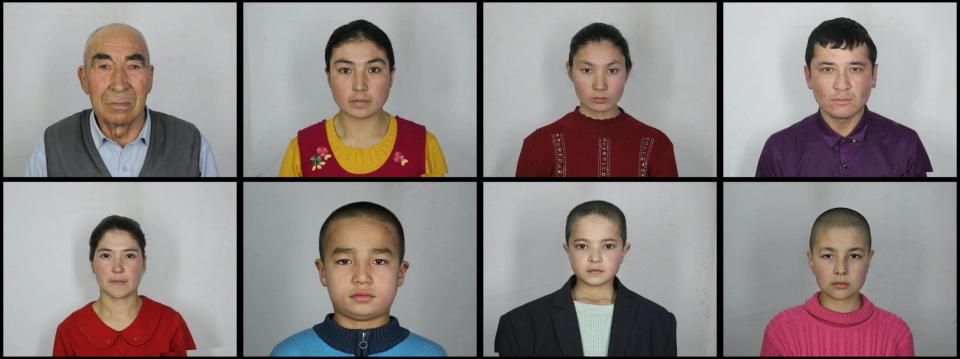
Extensive research by Dr Zen confirms that in one county alone, at least 22,762 residents were either in a camp or prison between 2017 and 2018. This equals around 12 per cent of the population.
If the same percentage was applied to the rest of Xinjiang, it would mean that 1.2 million Uyghur and other Turkic minority adults were imprisoned.
The data finishes in 2018. Alongside other news outlets, the BBC was able to verify significant parts of the Xinjiang Police Files, including the identity of certain prisoners and photographs showing the extreme measures taken in detention centres.

 Yahoo News
Yahoo News 
